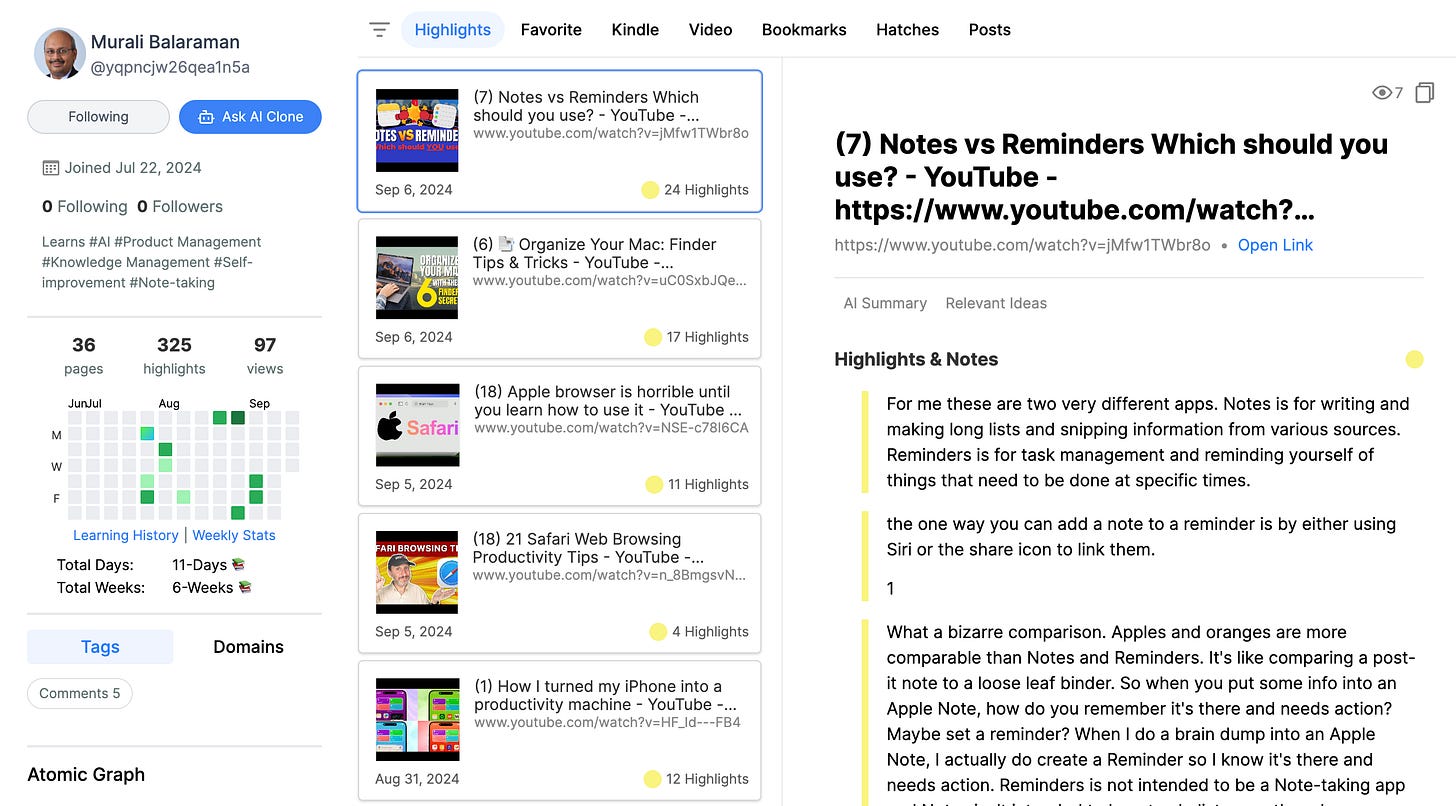How hindsight can take us to a new level of “wisdom management”
“All models are wrong, but some are useful.“
— George Box
Hi friends,
How's everything going?
This is Kei and Kazuki, founders of Glasp 👋
We hand-picked 3 good articles for you to highlight this week. Hope they'll help you get new ideas and perspectives. (You can read this online!)
📚 3 Good Articles for You
The 5 Levels of Understanding Yourself
by Mark Manson (2 mins)
Level 1: The Child Self – At the most basic level, the self is defined by what we can control. If you can control your hand, it's part of you; if you can't control something like a chair, it’s not part of you.
Level 2-4: Evolving Self – As we grow, our sense of self evolves: in teenage years, it's shaped by social perceptions; in college, the ego emerges as a defense mechanism; later, we realize the self is an arbitrary definition formed by our experiences and culture.
Level 5: No Self – The self-concept is an illusion at the highest level. Reality is transitory, and by training the mind, one can transcend the idea of a fixed self and see existence as fluid and interconnected.
Share: Post your learning on X
How hindsight can take us to a new level of “wisdom management”
by Chip Conley (7 mins)
Hindsight fosters wisdom: Chip Conley emphasizes the importance of turning hindsight into foresight, urging individuals to reflect on life lessons as a means to cultivate wisdom for future decisions, both personally and professionally.
Wisdom management in leadership: Conley advocates for a structured practice of sharing insights within organizations. He highlights the value of intergenerational collaboration, noting how the older brain's ability to connect dots complements the younger brain's speed and focus.
Integrating wisdom with AI: Conley believes human wisdom, derived from personal experiences, should balance the growing influence of artificial intelligence, enabling organizations to draw on data-driven insights and personal foresight.
Share: Post your learning on X
How to Track Your Habits: Are Habit Trackers the Key to Career Success?
by Career Contessa Team (11 mins)
Habit trackers can help identify both productive and unproductive habits, leading to improved focus, motivation, and organization in personal and professional life.
The process of habit tracking involves setting clear goals, understanding the "why" behind them, and creating simple, repeatable actions to achieve them, with apps and tools available to assist.
While habit tracking offers many benefits, such as creating positive habits and boosting productivity, it also presents pitfalls like obsession with streaks and distraction by data. Moderation and reflection are key to maintaining balance.
Share: Post your learning on X
📣 Community
🟨 Updated YouTube Summary:
We added OpenAI's o1-mini and o1-preview models (beta) and a 'Temporary Chat' option for ChatGPT users. Please check here!
🟥 Glasp Talk with Stephen D. Torres:
Glasp Talk features intimate interviews with luminaries, revealing their emotions, experiences, and stories. The guest, Stephen D. Torres, is an accomplished educator, learning scientist, entrepreneur, and venture capitalist.
👀 Featured Curator on Glasp
Murali Balaraman
Murali is a consultant and YouTuber, learning productivity, and more! Let’s follow him and learn together 🤝
Please mention @Glasp and share your profile page on X to get featured!
❤️ Gratitude
We found some people who mentioned Glasp in their articles and blogs, and we appreciate all the kindness!
Thank you for sharing and mentioning us on X, LinkedIn, and/or in your blogs 🙂 We appreciate your support! Please feel free to ask us anything at any time! Also, feel free to join our Slack community ;)
Hope you enjoyed reading this newsletter!
See you next week ;)
Best,
Kei and Kazuki
--
Is Glasp helpful for you?
Would you be ready to highlight and find good content?
Glasp is a social web highlighter that people can highlight and organize quotes and thoughts from the web, and access other like-minded people’s learning.





Good reads.
My learnings: https://glasp.co/kei/p/745cd24a8ec14b41221a